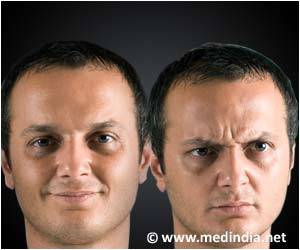Pediatric primary care practitioners (PCPs) are reluctant to prescribe antidepressant medications to adolescent patients —even those with severe depression.

Pediatric PCPs who are more knowledgeable about depression—and especially those who have access to an on-site mental health care provider—are more likely to prescribe antidepressants for depressed teens. Lead author Dr Ana Radovic of Children's Hospital of Pittsburgh of UPMC comments, "With the national shortage of child psychiatrists, education interventions which take into account a primary care provider's feelings of burden when addressing mental health problems and collaborative care with mental health professionals will be needed to increase appropriate prescribing of antidepressant medications to depressed adolescents."
Most PCPs Wouldn't Prescribe Antidepressants for Depressed Teens and Would Refer to Child Psychiatry In the study, 58 pediatric PCPs were presented with vignettes describing two 15-year-old girls with depression. One scenario met criteria for moderate depression and one for severe depression; neither patient was suicidal. Most of the PCPs were doctors, but some were nurse practitioners or other professionals.
The health care professionals were asked to make an initial treatment recommendation for each patient. Responses were compared with the PCPs' knowledge of depression, attitudes toward dealing with psychosocial issues, and practice characteristics.
Few PCPs said they would prescribe an antidepressant: only one-fourth for the patient with moderate depression and about one-third for the patient with severe depression. Current guidelines recommend antidepressants and/or cognitive behavioral therapy for teens with moderate to severe depression. Antidepressant medications are considered particularly effective for patients with severe depression.
In contrast, most PCPs said they would refer the patients to a child and adolescent psychiatrist for medication management: 60 percent for the patient with moderate depression and 90 percent for the patient with severe depression. Mental health consultation is recommended for severely depressed teens, but not necessarily those with moderate depression.
Providers who scored higher on a test of depression knowledge were about 70 percent more likely to recommend antidepressants. In contrast, those who felt a higher sense of personal burden when seeing patients for a mental health-related problem were less likely to say they would prescribe antidepressants.
Most PCPs in the study said they would refer depressed adolescent patients to a child and adolescent psychiatrist for evaluation—but the number of teens with depressive symptoms far outweigh the treatment capacity of the child psychiatry work force. For that reason, it's especially important that PCPs who see adolescents be capable and confident in managing depression.
The study shows that PCPs who know more about depression and feel less of a sense of burden seeing patients with mental health-related issues are more likely to prescribe antidepressants, as are those who have on-site access to a mental health care professional. Dr Radovic and colleagues suggest steps that may encourage "guideline-concordant" antidepressant prescribing by PCPs, including continued support and training in depression management, co-management with mental health care providers, and interventions to make PCPs more comfortable in dealing with patients' psychosocial problems.
Source-Eurekalert
 MEDINDIA
MEDINDIA




 Email
Email








